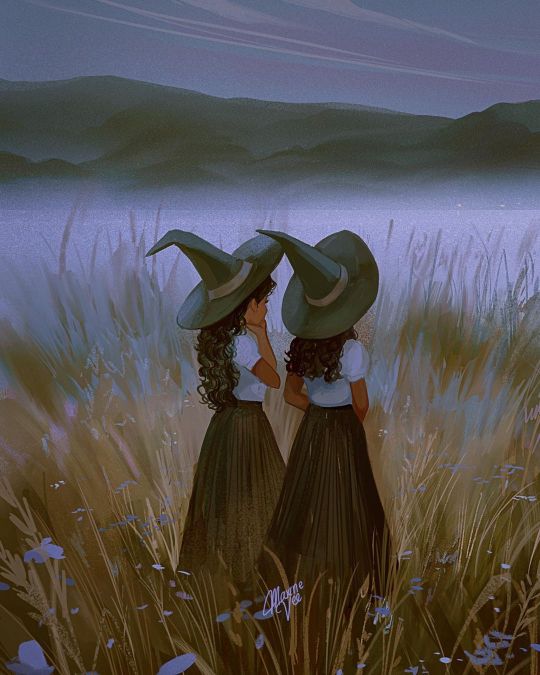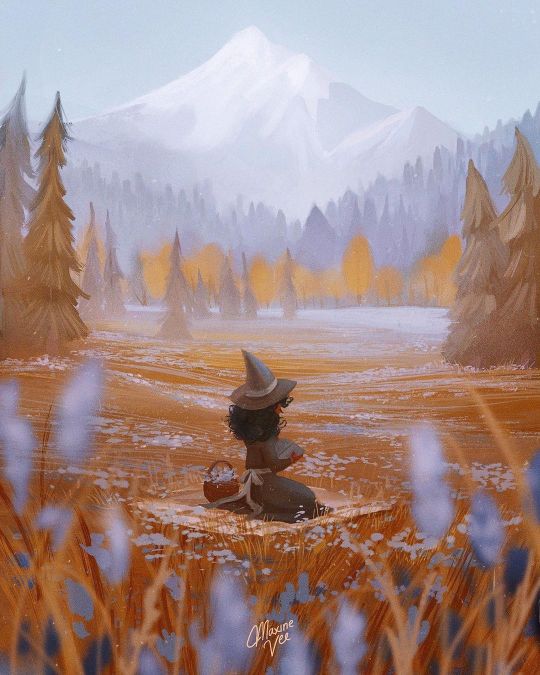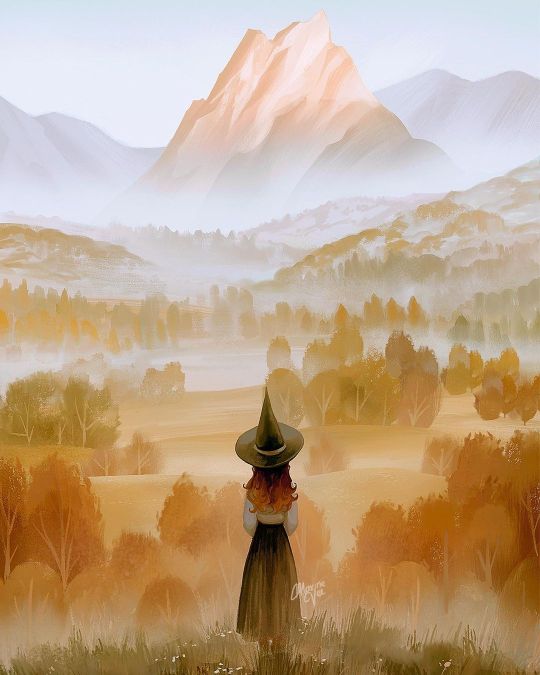Don't wanna be here? Send us removal request.
Text
i love you green. i love you forests. i love you smell of damp earth. i love you feeling before the storm breaks. i love you moss. i love you rivers. i love you streams. i love you thunderstorms. i love you sunlight shining through leaves.
147K notes
·
View notes
Text
Listen, maybe I can’t change the world, but I can pass eggs over the fence to my neighbor to save them a few dollars. I can cross the street and fix another neighbor’s cabinets. I can send my kid to the house next door with a can of tomato sauce they need and they’ll come back with a box of cocoa powder they weren’t going to use. We can leave our old furniture at the curb and one of us will drive by and pick it up to fix and sell or keep. I’ll plant a garden since I have the space and time and I’ll share what I can and I’ll get calls from someone else asking if I can use a crate of oranges.
I may not be able to change the world but I can do something
49K notes
·
View notes
Text
i can't vibe with anyone who thinks icarus was an ignorant idiot for flying too close to the sun. "oh i'd never do that i would have remembered my father's warning and been fine". do you seriously think that after years of imprisonment, feeling the sun on your face and the open air beneath your wings, you would be able to focus on anything but the joy of being alive and free? do you actually think that if you were given the opportunity to go where nobody has never been before, you wouldn't want to push it to the limit? to dare to be the first to try what no one else has ever even thought possible? do you honestly think you're too good for your own human nature? look me in the eyes and tell me if i strapped a pair of wings to your back that could take you wherever you wanted to go whenever you pleased that you'd be careful and sensible about it. you are not better than icarus just because you have the benefit of his example.
175K notes
·
View notes
Text
I don't know who needs to hear this but...
Someone being angry with you is a trigger, not abuse or harm or whatever else.
Respect people's autonomy. People are allowed to their feelings even if you don't like or understand them.
Feelings do not equal behaviors. Obviously some behaviors are not okay. But feelings and behaviors are not one in the same.
You are responsible for how you manage your feelings that come up with that trigger just as whoever is angry is responsible for how they handle their anger.
Anger is not inherently abusive or harmful.
Telling someone one of their feelings is inherently harmful to you and they shouldn't feel it is extremely fucked.
712 notes
·
View notes
Text
If your intention is to "educate", then it is your responsibility to research, fact check, and make sure you are not putting out misinformation.
If you are not up for this, then you are in no place and no way prepared to be providing any sort of "education".
819 notes
·
View notes
Text
“A mycelial network is a map of a fungus’s recent history and is a helpful reminder that all life-forms are in fact processes not things. The ‘you’ of five years ago was made from different stuff than the ‘you’ of today. Nature is an event that never stops. As William Bateson, who coined the word genetics, observed, ‘We commonly think of animals and plants as matter, but they are really systems through which matter is continually passing.’”
�� Merlin Sheldrake, Entangled Life
8K notes
·
View notes
Text
Just because the lesson is the same, does not mean that YOU have not changed. Perhaps this time around you can glean something new, learn another facet or skill, discover something overlooked or misunderstood before.
Remember that no matter how skilled you are or how long you've studied, it's okay to go back to the basics. You're not a bad witch or lesser than you were by doing this.
648 notes
·
View notes
Text
PSA - Conflation and Misinformation
This is your regularly scheduled reminder that the fact that something historical:
refers to
is named for
is located near
is tangentially related to
resembles
a pagan or pre-Christian:
society
culture
festival
personage
tradition
does not automatically make it evidence of:
cultural theft (by the Church)
direct correlation
direct equivalence
antiquity of modern pagan beliefs
actual witches (by modern standard)
secret surviving pagan cults
and when encountering these claims, one should always:
read / think / listen critically
look for sources from the presenter making the claim
fact-check using information from mundane academic sources
revise previous views in light of new information where applicable
do all of this before passing on the information to others
Apply as needed. There are exceptions to these rules, so always do your homework.
919 notes
·
View notes
Text
Ever since Adam Smith, those trying to prove that contemporary forms of competitive market exchange are rooted in human nature have pointed to the existence of what they call ‘primitive trade.’ Already tens of thousands of years ago, one can find evidence of objects — very often precious stones, shells or other items of adornment — being moved around over enormous distances. Often these were just the sort of objects that anthropologists would later find being used as ‘primitive currencies’ all over the world. Surely this must prove capitalism in some form or another has always existed?
The logic is perfectly circular. If precious objects were moving long distances, this is evidence of ‘trade’ and, if trade occurred, it must have taken some sort of commercial form; therefore, the fact that, say, 3,000 years ago Baltic amber found its way to the Mediterranean, or shells from Mexico were transported to Ohio, is proof that we are in the presence of some embryonic form of market economy. Markets are universal. Therefore, there must have been a market. Therefore, markets are universal. And so on.
All such authors are really saying is that they themselves cannot personally imagine any other way that precious objects might move about. But lack of imagination is not itself an argument. It’s almost as if these writers are afraid to suggest anything that seems original, or, if they do, feel obliged to use vaguely scientific-sounding language ( ‘trans-regional interaction spheres’, ‘multi-scalar networks of exchange’) to avoid having to speculate about what precisely those things might be. In fact, anthropology provides endless illustrations of how valuable objects might travel long distances in the absence of anything that remotely resembles a market economy.
The founding text of twentieth-century ethnography, Bronislaw Malinowski’s 1922 Argonauts of the Western Pacific, describes how in the ‘kula chain’ of the Massim Island off Papua New Guinea, men would undertake daring expeditions across dangerous seas in outrigger canoes, just in order to exchange precious heirloom arm-shells and necklaces for each other (each of the most important ones has its own name, and history of former owners) — only to hold it briefly, then pass it on again to a different expedition from another island. Heirloom treasures circle the island chain eternally, crossing hundreds of miles of ocean, arm-shells and necklaces in opposite directions. To an outsider it seems senseless. To the men of the Massim it was the ultimate adventure, and nothing could be more important than to spread one’s name, in this fashion, to places one had never seen.
Is this ‘trade’? Perhaps, but it would bend to breaking point our ordinary understanding of what that word means. There is, in fact, a substantial ethnographic literature on how such long-distance exchange operates in societies without markets. Barter does occur: different groups may take on specialties — one is famous for its feather-work, another provides salt, in a third all women are potters — to acquire things they cannot produce themselves; sometimes one group will specialize in the very business of moving people and things around. But we often find such regional networks developing largely for the sake of creating friendly mutual relations, or having an excuse to visit one another from time to time; and there are plenty of other possibilities that in no way resemble ‘trade.’
Let’s list just a few, all drawn from North American material, to give the reader a taste of what might really be going on when people speak of ‘long-distance interaction spheres’ in the human past:
Dreams or vision quests: among Iroquoian-speaking peoples in the sixteenth and seventeenth centuries it was considered extremely important literally to realize one’s dreams. Many European observers marveled at how Indians would be willing to travel for days to bring back some object, trophy, crystal or even an animal like a dog they had dreamed of acquiring. Anyone who dreamed about a neighbor or relative’s possession (a kettle, ornament, mask and so on) could normally demand it; as a result, such objects would often gradually travel some way from town to town. On the Great Plains, decisions to travel long distances in search of rare or exotic items could form part of vision quests.
Traveling healers and entertainers: in 1528, when a shipwrecked Spaniard named Alvar Nuriez Cabeza de Vaca made his way from Florida across what is now Texas to Mexico, he found he could pass easily between villages (even villages at war with one another) by offering his services as a magician and curer. Curers in much of North America were also entertainers, and would often develop significant entourages; those who felt their lives had been saved by the performance would, typically, offer up all their material processions to be divided among the troupe. By such means, precious objects could easily travel long distances.
Women’s gambling: women in many indigenous North American societies were inveterate gamblers; the women of adjacent villages would often meet to play dice or a game played with a bowl and plum stone, and would typically bet their shells beads or other objects of personal adornment as the stakes. One archeologist versed in the ethnographic literature, Warren DeBoer, estimates that many of the shells and other exotic discovered in sites halfway across the continent had got there by being endlessly wagered, and lost, in inter-village games of this sort, over very long periods of time.
We could multiply examples, but assume that by now the reader gets the broader point we are making. When we simply guess as to what humans in other times and places might be up to, we almost invariably make guesses that are far less interesting, far less quirky — in a word, far less human than what was likely going on.
6K notes
·
View notes
Text
Friendly reminder that if someone tells you that you need to connect to a "source consciousness" in order to be a "real witch" and ESPECIALLY if that person tells you to stop taking your medication in order to do so....
THAT PERSON IS A FUCKING LIAR.
You are not required to "connect" to anything in order to be a real witch. You are a real witch because you choose to be a witch.
Your meds do not prevent you from being magical or from exploring any kind of greater potential. They are there to keep your body and your brain as healthy and functional as possible. Do not let anyone shame you for needing medication.
Please keep taking your meds!
1K notes
·
View notes
Text
Hexbreaker Powder
Intent: To break, remove, or otherwise nullify a curse, jinx, hex, illwishing, or crossing. Also counters the effects of All-Purpose Cursing Powder, if need be. Ingredients:
Angelica Root
Galangal Root
Nettle
Garlic Powder
Nutmeg Powder
Solomon’s Seal Root
Cayenne
Black Pepper
Materials:
Mortar & Pestle (or spice grinder)
Funnel
Mesh Strainer
Collection Dish
Container
Note: Powdered versions of most herbs are available online. I recommend Wellcat Herbs and Starwest Botanicals for the best quality products. Also, if you can get your hands on a good spice grinder, you can make your own powder from dried herb products. Grind each ingredient separately to produce fine powder. Sieve the material through the mesh strainer into the collection dish; this removes the larger unground pieces and gives you cleaner powdered herb. (Pro-Tip: Putting a funnel under the mesh strainer reduces lost material and makes collection much easier.) Combine the component powders in the collection dish, mix well, and bottle immediately. For volume, go heavier on the less expensive or more easily available materials like Garlic, Nutmeg, Cayenne, and Black Pepper. For curses involving visitation, add Salt. This mix is all-purpose. Use for any spellwork designed to remove, counter, or prevent magical harm, or to nullify the effects of All-Purpose Cursing Powder, if the need arises. (Please note that some of these materials are irritants; do not inhale the powder or the smoke that rises from it, and do NOT add it to food or drink as a method of delivery.)
687 notes
·
View notes
Note
Are there any goddesses who might serve as a patron of queer women in modern times? I know that lesbians were largely invisible in patriarchal Greece, and that love between women was never celebrated like love between men, but I feel that this can change now that we’re in a progressive time. I think a lot of queer women feel left out and unseen in HelPol and I want to change that.
Hello, Anon!
Sappho, known for having celebrated women's relationships with women, prayed to Aphrodite, and I think that speaks volumes in this instance. While Aphrodite wasn't depicted in the myths as having had sexual relationships with women, she was widely viewed as blessing all sorts of love, even when society regarded it love as inappropriate, and I think that still holds true today.
My methodology is Reconstructionist, meaning I'm strict about using verifiable historic evidence for my practice. Furthermore, I personally feel myths are of limited theological value.
I endorse your stated goal of helping queer women feel included and seen in Hellenic polytheism. However, none of the Theoi were or are explicitly patrons of same-sex love, so this suggestion is the best I can offer you.
21 notes
·
View notes









